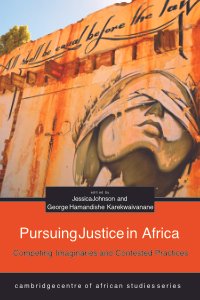By International Organization for Migration (IOM)
This publication entitled "Detention and Migration in West and Central Africa: A Comparative Study" provides a comprehensive analysis of the detention situation in the context of migration across the West and Central African region. Through the Network of Legal Experts on Migration for West and Central Africa (Nolem), an in-depth research is conducted analyzing how 13 countries in the region regulate and enforce detention of migrants in both law and practice. The study delves into whether current laws and practices of migrant detention are consistent with international and regional human rights law and discusses the gaps or violations and identifies good practices. The study also examines the alternatives to detention that are proposed by states. Finally, recommendations are made to states, regional bodies and other stakeholders. The study gives specific attention to providing a gender responsive and child sensitive approach. The study contains country-specific papers drafted by the legal experts shaping the Nolem Network, as well as articles providing and international and regional overview and a comparative analysis. The Nolem Network aims to reshape the migration policy and law landscape in West and Central Africa by strengthening and promoting evidence-based, rights-based and gender-responsive national and regional migration laws and policies throughout the region for lasting positive change.
Geneva, SWIT: International Organization for Migration, 2024. 124p.





